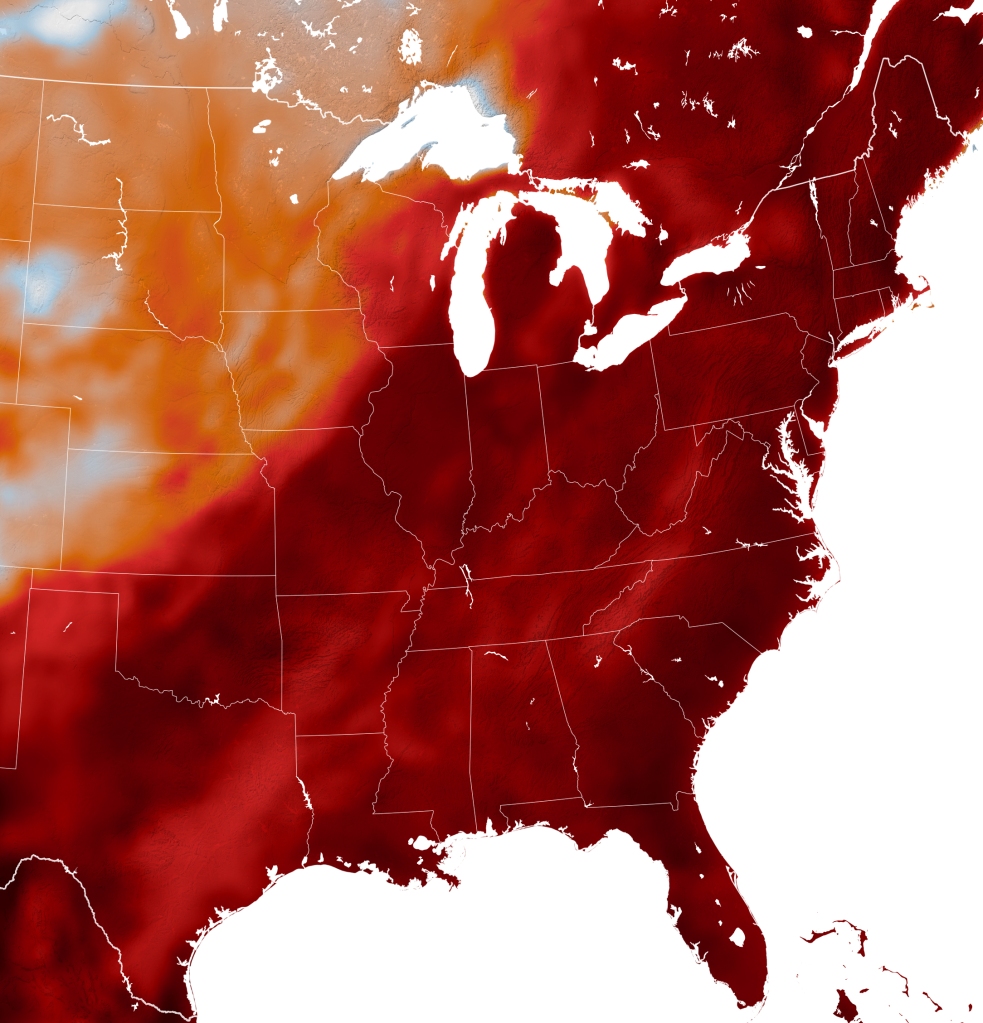
By Anders Lorenzen
Earlier this month a heat wave stretching across the US from central to eastern states broke decade-old temperature records, as the National Weather Service (NWS) warned of further deadly weather events.
From Indiana to New England, around 80 million people have suffered excessive heat. This forced New York Governor Kathy Hochul to activate the Emergency Operations Center, as the high temperatures were forecast to. The Governor warned that this event is more likely to cause deaths than other extreme weather, such as flooding, hurricanes and tornadoes, which the state has grown accustomed to.
In Chicago, 36 degrees C was registered at Chicago O’Hare International Airport, breaking the record of 35 degrees C set in 1957. The heat index, which factors in temperature and humidity to measure how hot it feels, touched 35 degrees C. Teams of city workers scattered across Chicago to homeless camps, trying to coax people to shelter from the heat.
According to NWS meteorologist Marc Chenard, Detroit and Philadelphia, as well as cities in New Hampshire, Connecticut and Maine were also vulnerable to extreme heat conditions and could beat old temperature records.
Deadly heat
In the west of the country, firefighters battled high temperatures, low humidity and strong winds as they sought to contain a wildfire that started northwest of Los Angeles and has burned 12,000 acres. The blaze forced about 1,200 people to evacuate the Hungry Valley outdoor recreation area.
In southern New Mexico, local authorities reported, that wildfires burned to the north and south of Ruidoso village, forcing the community of around 8,000 people to evacuate.
These high temperatures can cause dehydration, heat exhaustion and heatstroke, and can worsen pre-existing health conditions such as cardiovascular problems.
While it is too soon to say to what extent the heat is driven by climate change, this heat wave is occurring earlier in the year than the historic average, with central Maine reaching 30 degrees above average. Climate scientists have consistently warned that the severity and frequency of extreme heat will increase as the planet heats up.
In November, Americans will go to the polls and decide whether Joe Biden or Donald Trump will be the next US president. A Trump presidency will undo everything Biden has done to tackle climate change, and might even go further and undo policy frameworks decades old.
Discover more from A greener life, a greener world
Subscribe to get the latest posts sent to your email.
Categories: climate change, impacts, US 2024 Election, US politics, Weather
Thank you for sharing all this valuable information!
LikeLike
The 2024 election in the US highlights the growing impact of climate change, as Northern states face deadly heatwaves. This underscores the urgent need for comprehensive environmental policies to protect public health and address global warming.
LikeLike